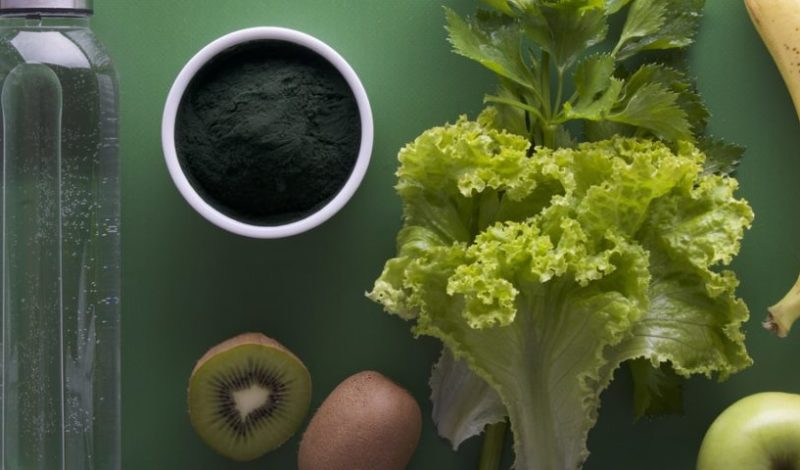Safeguard your youth: How maintaining healthy intestinal flora can keep you invigorated well beyond 50 Not many people realise that [...]

Bad skin? Your gut microbiome could be to blame
Bad skin? Your gut microbiome could be to blame
Experts reveal top tips on how good gut health can help eliminate acne and other common skin conditions
Anyone who regularly struggles with blemishes, neurodermatitis, acne or other skin conditions should take note of the trillions of bacteria in their intestinal flora. Scientific studies show that skin blemishes and skin conditions can be linked to an imbalance in the gut microbiome because the intestinal flora, the immune system and the skin all communicate with each other via the ‘gut-skin axis’, and influence each other as a result. Experts from the biotechnology company BIOMES summarise the most important findings from research and give tips on how you can improve your microbiome for healthy, glowing skin.
Bacteria live on every millimetre of our skin and their job is to form a protective layer to maintain the skin barrier against pathogens and other foreign bodies. New studies suggest that these bacteria are closely related to the totality of microorganisms (especially bacteria, fungi, viruses) in our gut. Researchers conclude that intestinal bacteria produce important substances that influence the entire body, including the skin. For example, they produce the important fatty acid butyrate, which has a positive effect on the condition of the skin. Conversely, vitamin D, which is produced in the skin when the sun shines, influences the condition of the intestinal microbiome and can lead to digestive problems if it is deficient. The two organs are connected via the gut-skin axis. A well-known example that demonstrates this is pimples being particularly common after eating sugary or fatty foods.
The composition of the intestinal flora also influences the skin’s thickness. For example, studies show that the thickness of the skin has been proven to improve with the presence of ‘lactobacteria’. Lactobacteria are part of the beneficial group of intestinal bacteria. Pharmacist Plamena Dikarlo, Manager Research & Development at BIOMES, explains: “The number of protective bacteria inhabiting our intestines depends firstly on our diet and the intake of harmful substances such as alcohol or nicotine. However, amount of sleep, exercise, stress, illness and medication can also have an impact. Too little of one or too much of the other could result in unwanted substances entering the bloodstream and making their way from there into the skin.”
In order to strengthen your intestinal flora and thus improve the appearance of your skin, expert Plamena Dikarlo gives the following tips:
1. Choose spices over salt and sugar
When it comes to salt, the following applies to a gut-friendly diet: less is more. Sugar and flavour enhancers should be avoided if possible. Instead, it is better to experiment with spices. In particular, black pepper, cayenne pepper, cinnamon, ginger, oregano, rosemary and turmeric have been shown to promote beneficial intestinal bacteria.
2. Eat less meat
Too much meat can lead to a poor ratio of omega-3 to omega-6 fatty acids, which can increase inflammation in the body. Fish is a good alternative because it is rich in valuable omega-3 fatty acids and moisturises the skin. However, a vegetarian lifestyle is also very beneficial for a strengthened microbiome and clear skin.
3. Dietary fibres help to shed bulk
Fibre is found predominantly in plant-based foods such as whole grains, legumes like lentils, fruits, vegetables and nuts. They should be a regular part of the diet. They are very beneficial for good digestion but can also bind up to 100 times their own weight in water. You should also make sure to drink enough water or unsweetened teas.
4. Stay well supplied with micronutrients
Fruit and vegetables not only provide us with fibre but are also important sources of nutrients and therefore crucial for healthy skin, hair and nails. In particular, the polyphenols found in vegetables and fruits such as olives or grapes strengthen the vessels – including those of the skin. In addition, they promote the diversity of the intestinal microbiome. Vitamin C supports healthy collagen formation for normal skin function. A real ‘vitamin C bomb’ is, for example, a smoothie made from fresh oranges and a few leaves of kale.
5 Sport and exercise also help the skin
Exercising regularly also has positive effects on the skin, because sport not only supports a healthy intestinal flora, but also promotes blood circulation and thus helps the important nutrients reach the skin. If you’re able to build up muscle tissue, this will tighten the skin’s surface.
In previous studies, targeted intake of bacterial cultures with the help of a probiotic was also able to restore the balance of the intestinal bacteria and measurably improve the condition of the skin in the people studied. Dr. Paul Hammer, systems biologist and CEO at BIOMES, recommends: “When taking food supplements, it is advisable to determine the ratio of bacteria in the intestine beforehand, because an excess of a certain strain of bacteria can have an unfavourable effect. A DNA analysis of the intestinal bacteria, such as the BIOMES INTEST.pro home gut health test, provides information about what your own intestine is lacking and how to make it up.”


